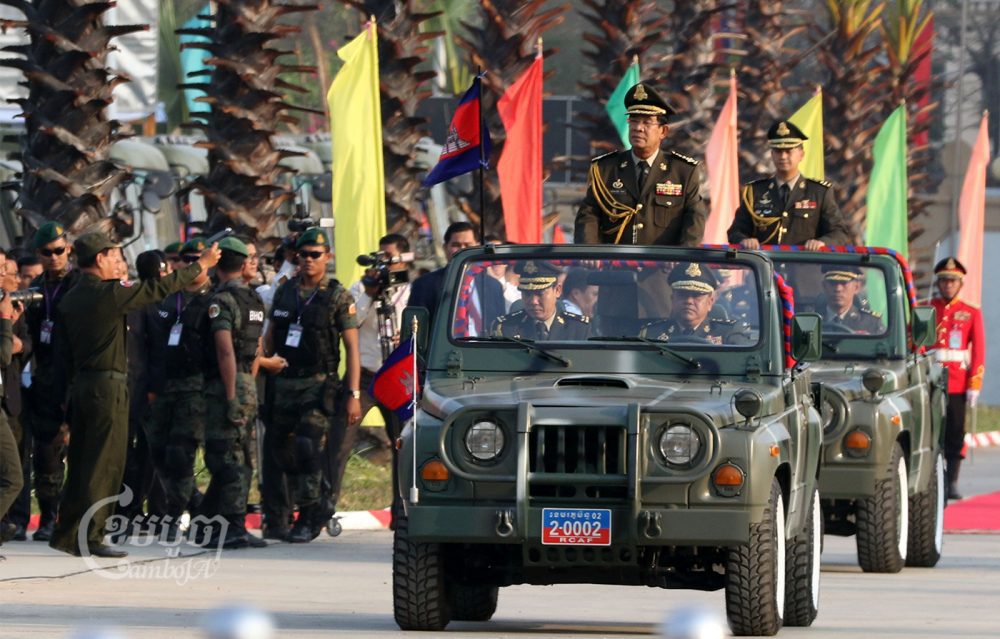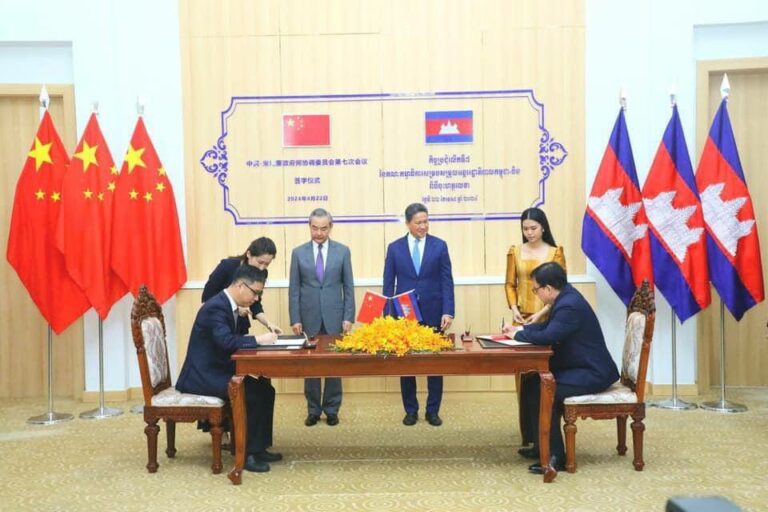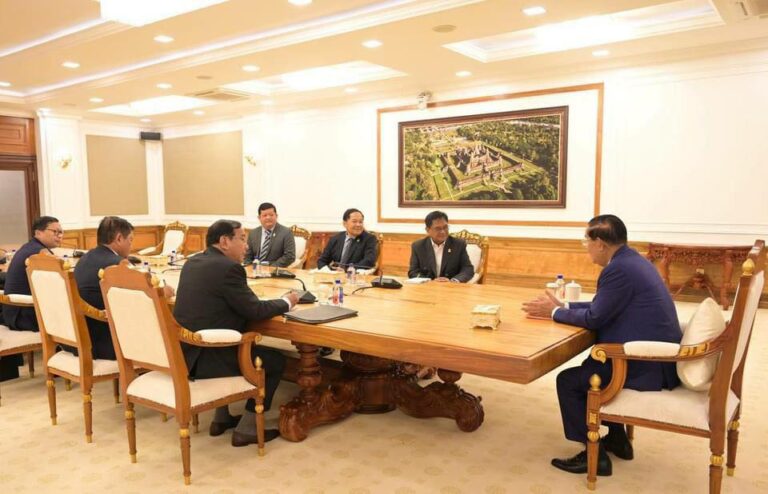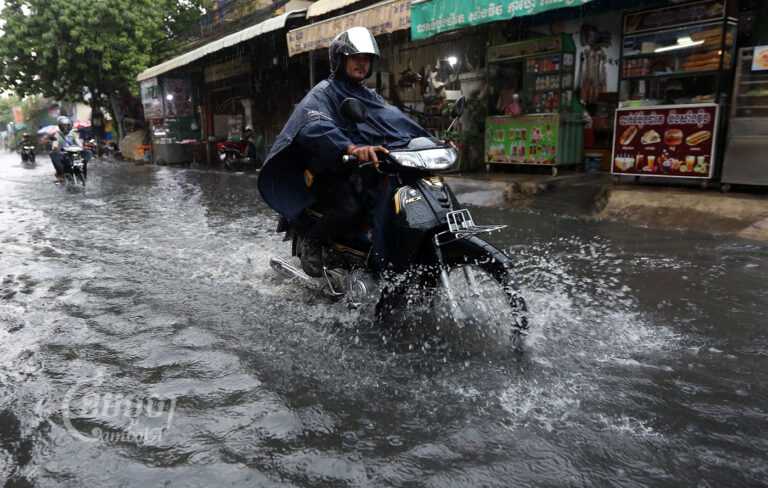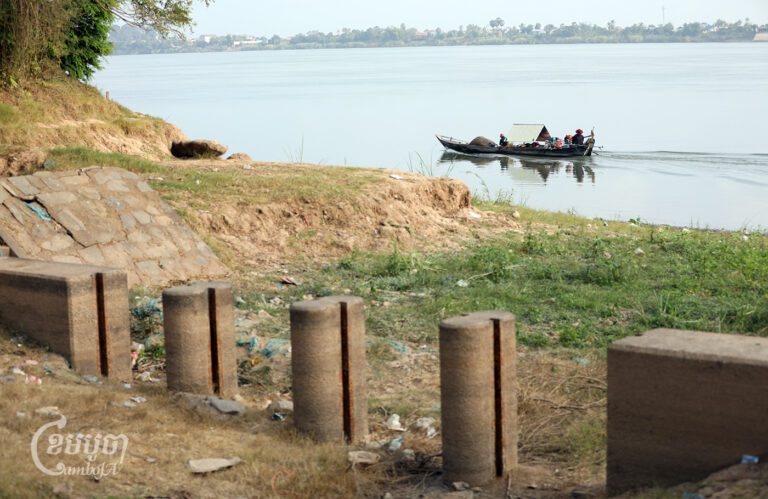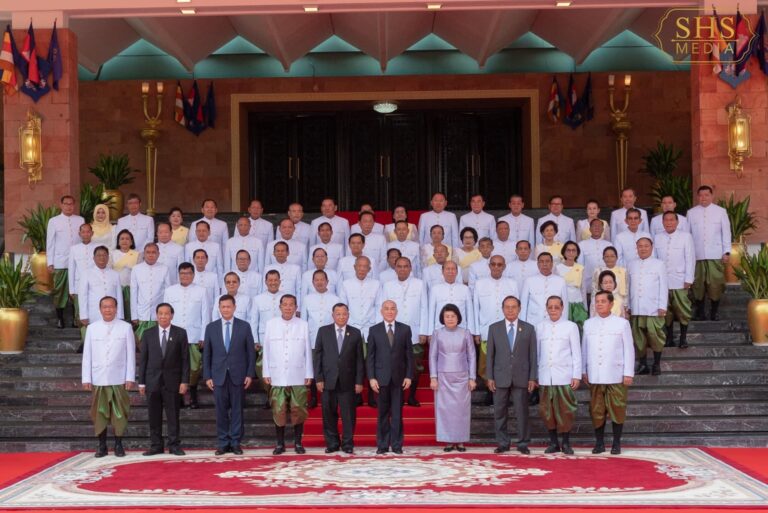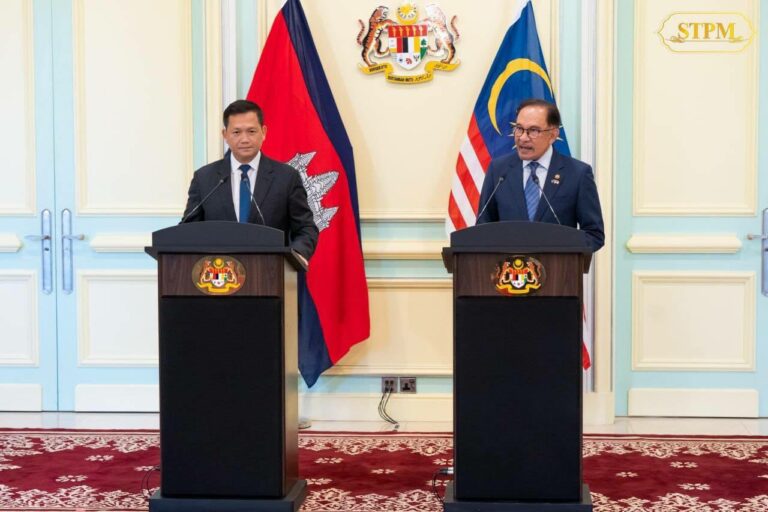Since being endorsed by the Cambodian People’s Party in December as the ruling party’s only prime minister candidate, Hun Manet is increasingly appearing in public, taking his father’s place at events ranging from the inauguration of military buildings to road openings.
Manet, who is Prime Minister Hun Sen’s eldest son and currently serves as commander of the Royal Cambodian Army, now routinely gives speeches at health care centers, pagodas, and schools. Like his father, he routinely stresses the importance of electing someone who can ensure peace in the country — a major aspect of Hun Sen’s political rhetoric.
Manet showers praise on his father, referring to him as a leader who has demonstrated many achievements at various stages throughout the history of Cambodia, and contrasting him to “extremist politicians,” who he says have done nothing but incite violence, discrimination, and hatred in their own society.
“Thanks to the peace under the wise leadership by Samdech Techo Hun Sen… the military forces’ duty is to defend the head of government,” he has said repeatedly. The words “extremist politicians” — referring to the leaders of the court-dissolved opposition party — are also commonly used.
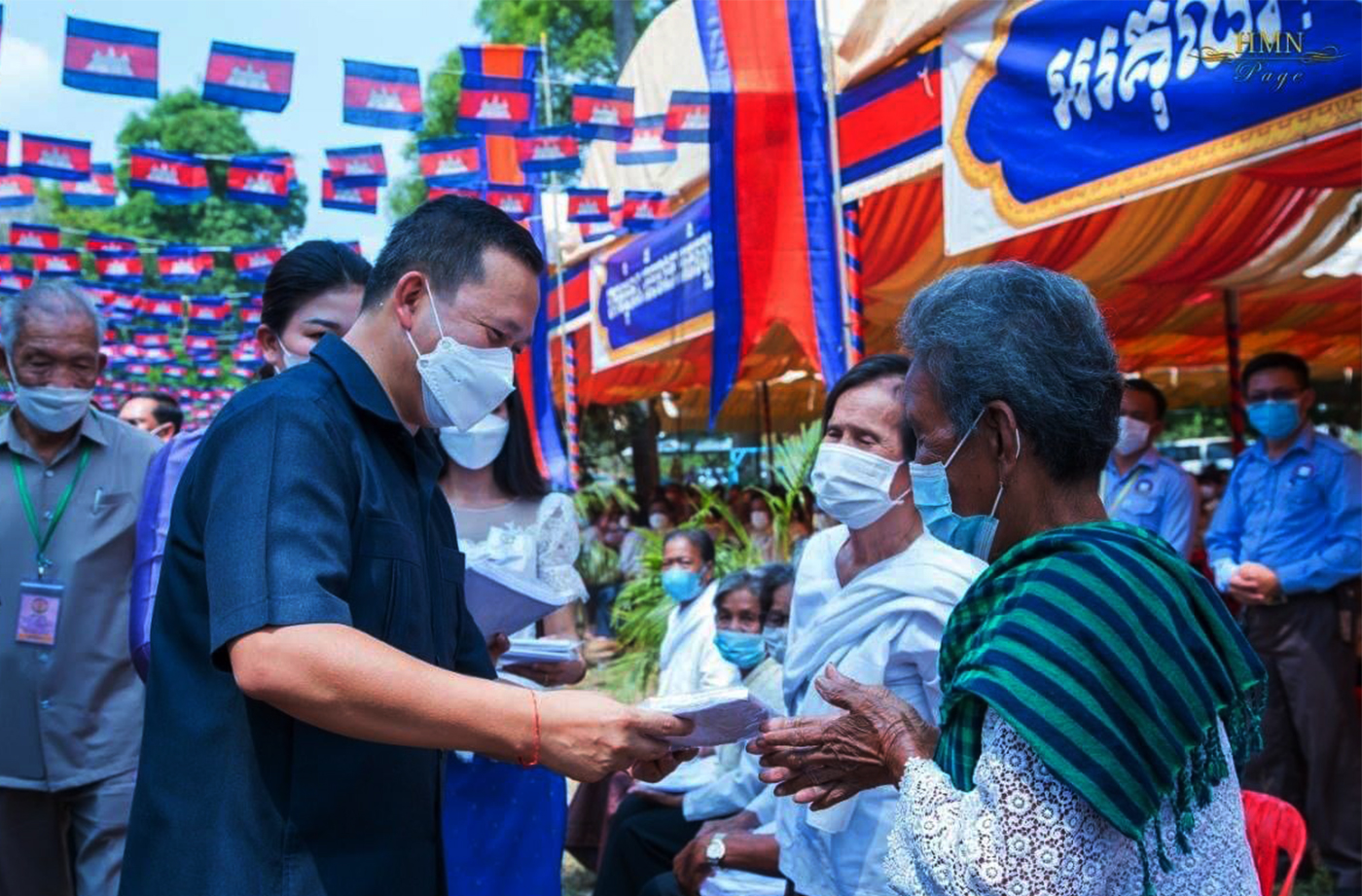
Manet has been continuously promoted within Cambodia’s armed forces. In addition to his army role, he is also deputy commander-in-chief of the Royal Cambodian Armed Forces.
Political analyst Lao Mong Hay said it’s unsurprising that Manet’s rhetoric echoes his father’s so closely, given the complete ideological control Hun Sen wields over his party.
“Hun Manet is a learned man, he should be able to cut a figure which is distinctly his own, not his father’s,” he said, adding that Manet could, for instance, create the conditions conducive to the full development of the nation’s younger generations.
“He could set out to encourage them to raise issues the society is currently facing, to actively debate them with him, thereby spawning together concrete and doable ideas of what to do and how to do it in order to address them,” he said.
Rather than shutting down opinions critical of the government, Mong Hay said, Manet should appeal to the politically engaged youth in order to develop a government of ideas and actions.
“He could appeal to youths and indeed to all compatriots to actively cooperate with his government to implement those policies which are anyway their own ideas,” he added. “When all the faculties of the people are fully employed, working together in freedom it would mean peace, development, prosperity, solidarity, cohesive and national unity.”
In early December, Prime Minister Hun Sen announced that Manet would be a PM candidate and that he had his father’s support. Later that month, Manet was unanimously endorsed by the CPP’s central committee as the next PM candidate.
The prime minister also announced a new shadow cabinet of the CPP, dominated by the party’s younger generation.
Trained at the US Military Academy at West Point, Manet is seen as likely to play a vigorous role in international relations — particularly military relations.
In February, he met with the Commander-in-Chief of the Royal Thai Army to boost the bilateral cooperation between the two military forces. The same month, he visited Japan’s Self-Defense Forces’ Parachute Unit and Special Forces School, and met a number of Japanese leaders, including the foreign minister and Prime Minister Kishida Fumio.
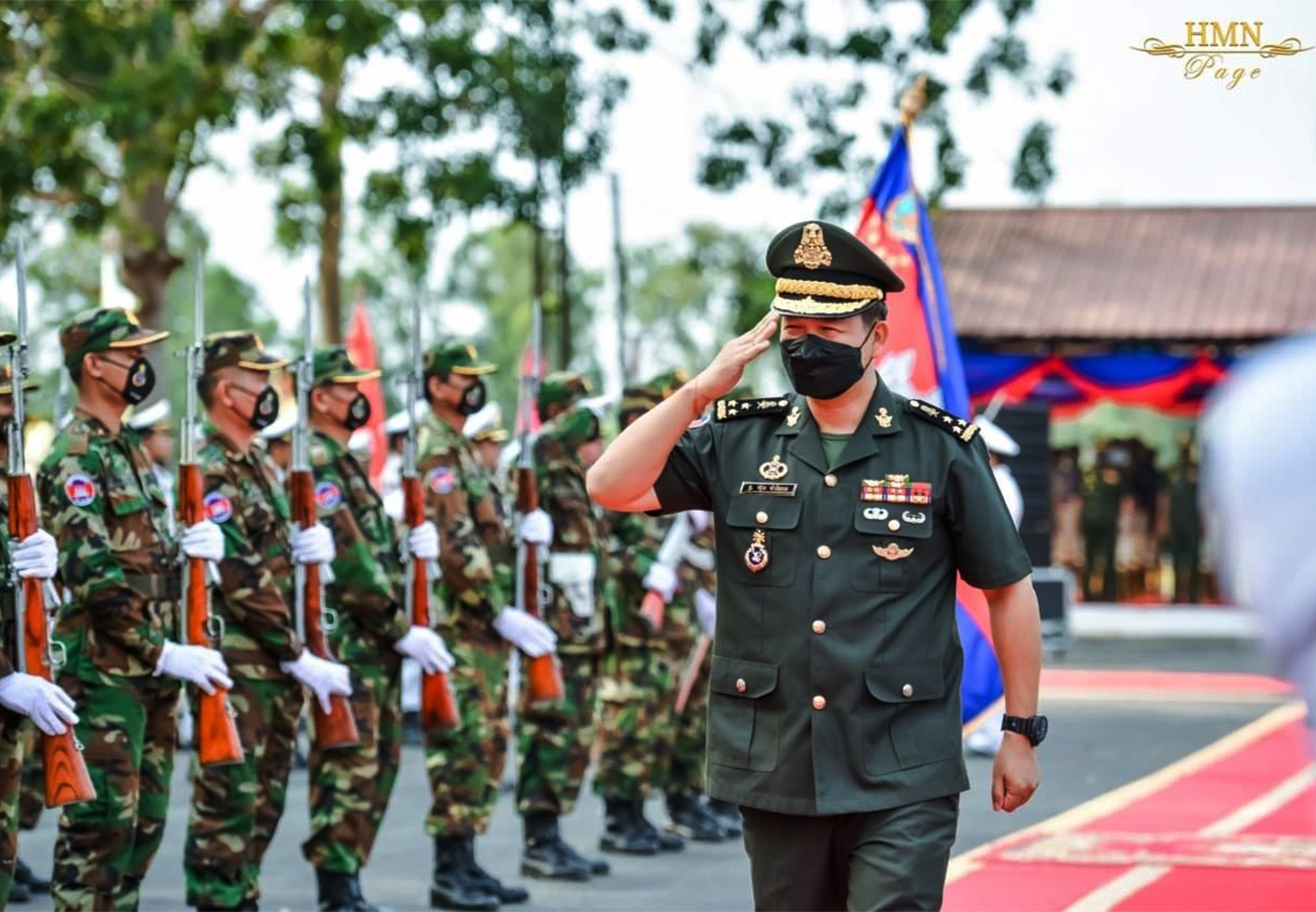
But analysts stress that corruption, land disputes, and the repression of political and human rights remain the country’s key challenges.
Research and Advocacy Program Manager of Cambodian Youth Network (CYN), Heng Kimhong, said that youth need modern policies that meet the people’s needs and solve pressing social problems. Hun Sen frequently focuses on January 7 — the anniversary of the overthrow of the Khmer Rouge — in his speeches and Manet has echoed this rhetoric. But focusing on a four-decade-old victory doesn’t speak to the needs of the time, he said.
“For the youth, when it comes to the [concept] of 7 January day, it’s just like telling a legend we have never seen,” he said. “The current social issues are different from the previous time; we need to compete internationally and regionally.”
Em Sovanara, a political analyst, said new politicians need to have a new political vision as part of their identity.
“When they just keep using the old political message or the ways created by the previous generation who already saw their popularity decline, they will not succeed in political competition,” he said. “We saw the 2017 commune election as a clear reflection that CPP’s successors must create something new to attract or gain support, especially the young generation voters.”
In June 2017, the opposition Cambodian National Rescue Party made major inroads in the commune election, winning 44% of the popular vote. Months later, party president Kem Sokha was arrested on treason charges widely believed to be politically motivated and the CNRP was dissolved by the Supreme Court — with more than 100 of its members barred from serving in politics for five years.
Sovanara said the younger generation must see political messaging that addresses their needs.
“The issues of economy, employment, security issues, and climate change would be potential messages [to attract voters] rather than just repeatedly raising the 7 January policy,” he said.
Sok Eysan, CPP spokesman, said all political parties always raise their own achievements to the public to attract the support and CPP’s leaders have to follow the party’s political message and policy.
“Previous generations have left legacies and experiences for the next generation that is why we try to choose the qualified successor [Hun Manet]. We do not satisfy someone; we follow the party’s policy,” he said.
“We do not have only the 7 January achievement, [we] continue to raise and promote other achievements that serve the interests of people and nation.”


